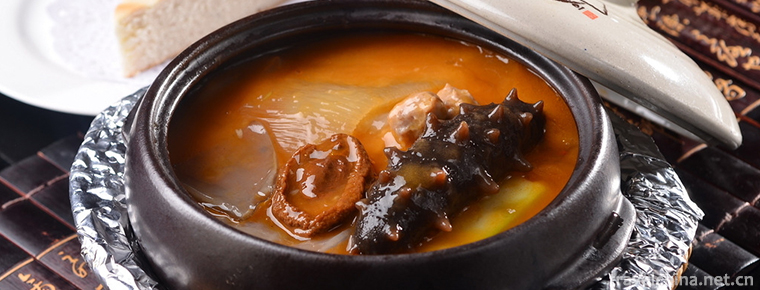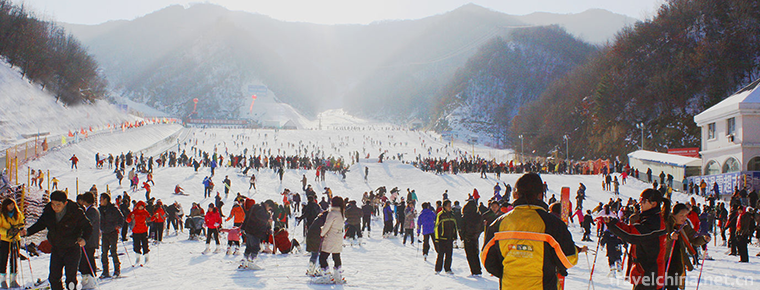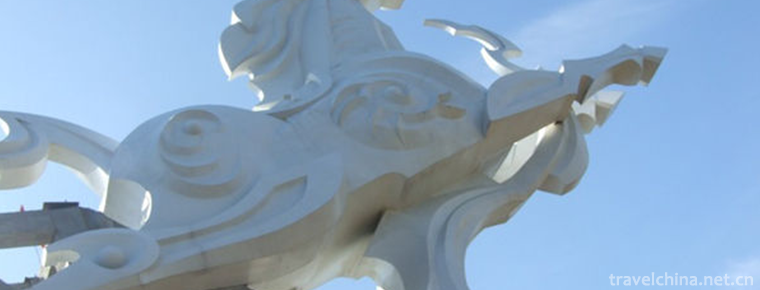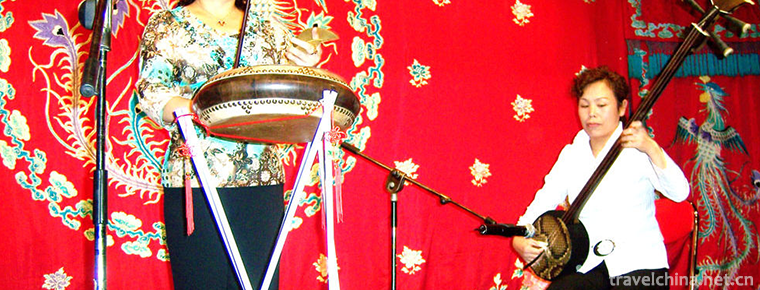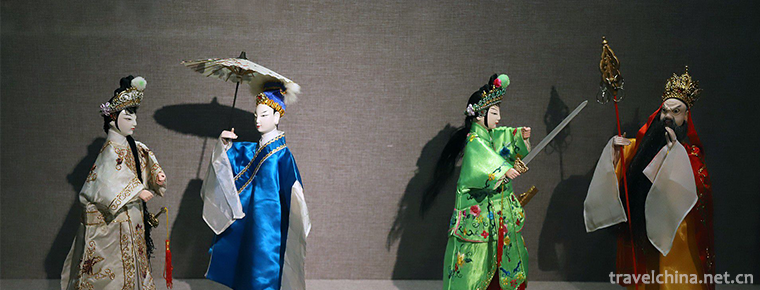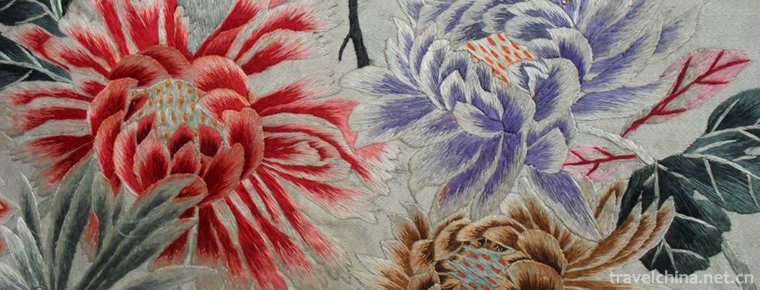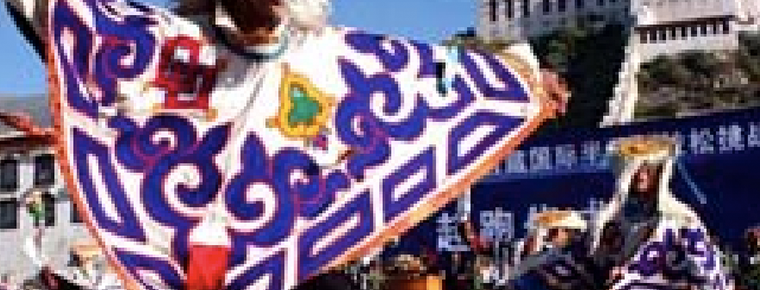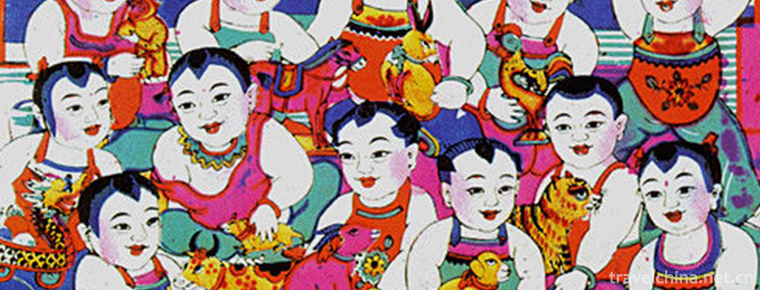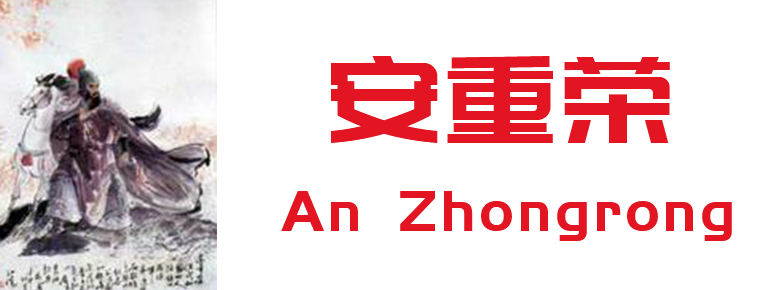Legend of Meng Jiangnu
Meng Jiangnu's story, as one of the four love legends in ancient China (the other three are Niulang and Zhinu, Liang Shanbo and Zhu Yingtai, and The Legend of White Snake), has been widely circulated for thousands of years. The story originates from the historical facts of Qiliang's wife crying for her husband. The two protagonists in the story are Meng Jiang and Qiliang. There is such a man in the history, which is not a fabrication. Meng Jiangnu's legend has a very early origin, which began in the Warring States Period. There are some fragments in Chunqiu Zuo's biography, Li Ji Tangong, Mencius, Shuoyuan and LieNu Zhuan of Han Dynasty.
In 2006, Meng Jiangnu's legend was listed in the first national intangible cultural heritage list by the State Council.
historical origin
Meng Jiangnu's legend has been widely spread among the people by oral transmission. It was not until the early 20th century, propelled by the spirit of the May 4th Movement, that it was brought into the vision of researchers. Gu Jiegang, a famous Chinese historian, traces the original form of Meng Jiangnu's legend to a story in Zuo Zhuan. Zuo Zhuan recounts this story in order to praise Qiliang's wife (that is, Meng Jiangnu of later generations) who can still act with courtesy even when she is sad. It is admirable that her mind is not disordered.
Qiliang's wife, who did not cry in Zuozhuan, was contaminated by the music world in the Warring States Period and added a story of crying. This is a very important change, the later generations of Qiliang wife story of variation is along with the "cry of sorrow" born.
The first person to record the collapse of the city was Liu Xiang in the late Western Han Dynasty. In the biography of martyrs, he first recounted the story of Qiliang's wife in Zuo Zhuan, then he continued to write: Qiliang's wife had no children, her mother-in-law's family had no relatives, and after her husband died, she became a lonely widow. Qiliang's wife "cried over her husband's dead body in the city", and the crying was very sad. Passers-by were all moved. Ten days later, the city collapsed. The relevant records of the Tang Dynasty changed the story of Qiliang's wife greatly. Qiliang changed from Qi people in the Spring and Autumn Period to Yan people in the Qin Dynasty; Qiliang's wife's name appeared, and her name was Meng Zhongzi or Meng Jiangnu; Qiliang's death was no longer a battle field, but was built in the city wall after being captured for shelter, so his wife had to cry to the city; and there were too many dead bodies built in the city wall, which could only be identified by blood and bone. The story of Qiliang's wife, which was processed in the Six Dynasties, Sui and Tang Dynasties, links the collapse of the city with the Qin Shihuang, which is a great creation.
In the Yuan Dynasty, the folk operas in China were very developed, and a lot of dramas and popular works appeared. Stories like Meng Jiangnu, which were full of vitality and creative space, naturally became the source of opera creation. Fan Lang's name varies from Fan Xilang, Fan Silang, Fan Shilang, Fan Xilang to Fan Qiliang, Fan Jiliang and Wan Xiliang. The plot of the story is unfolded in twists and turns, and other characters related to them, such as Fan Lang's mother, appear in the opera, making the story more and more full.
Since Ming and Qing Dynasties, the story of Meng Jiangnu has continued to evolve among the people. Meng Jiangnu is said to be born of gourds by oral narratives from all over the country. Because the gourds (or melons) are related to the two Meng Jiangnu families living next door, they are called "Meng Jiangnu". Meng Jiangnu's story not only spread for a long time, but also affected a wide range of regions. According to the local folklore and people's different interest orientation, different places have made various reforms to this story, which makes Meng Jiangnu's legend show a very strong regional color.
Qi Liang's wife's story was first recorded in the 23 years of Xianggong in Zuo Zhuan. In the autumn of the 22nd year of King Zhou Ling (the 4th year of Qizhuang Gong, 550 years ago), Qizhuang Gong Jiang Guangfei Wei and Jin took the dynasty song. In 549 years ago, Emperor Qizhuang returned to his teacher from Chao Ge. He did not return to Linzi, the capital of Qi, and raided Ju. In the battle of attacking Ju, Qi generals Qiliang and Huazhou died bravely and died for their country. Later Qi Ju talked about peace and strikes, and Qi returned to Linzi with Qi Liang's corpse. Qiliang's wife cried to welcome her husband's coffin on the outskirts of the road. Emperor Qizhuang sent condolences. Qi Liang's wife believed that her husband owed a great deal to the country. Qi Zhuang Gong sent people to mourn in the countryside, lacking sincerity, hastiness and respect for the martyrs, so she refused Qi Zhuang Gong's mourning in the countryside. Later, Qizhuang personally went to Qiliang's house to condole and buried Qiliang in the suburbs of Qidu. Qiliang Tomb is located in Langjiacun East of Qidu Town, Linzi District, Zibo City, Shandong Province. It should be said that this story is clearly recorded in Zuo Zhuan, which is a real fact. Although there are no later plots such as "crying husband", "city collapse" and "throwing water", mainly expressing Qiliang wife's strong character of righteousness and awe, the main frame of her opposition to war and love for her husband has been hidden. The increase of the plot of "crying husband" is Zengzi's words in "Sandalwood Bow" in the Book of Rites. Zeng Zi said that Qiliang's wife "cried for sorrow"; in Mencius of the Warring States Period, Chun Yu Kun was quoted as saying that "Qiliang's wife of Huazhou cried for her husband and changed into a national custom"; so that the historical fact "Qiliang's wife refused to offer condolences outside the suburbs of Qizhuang" in Zuozhuan became "Qiliang's wife cried for her husband", and the focus of the story shifted.
The increase of the plot of
"city collapse" was in Liu Xiang's Shuoyuan in the Western Han
Dynasty, and in the Biography of LieNu, the plot of "throwing Zishui"
was added. Qi Liang's wife's story reached the Han Dynasty, crying husband,
city collapse, water has become a series. In the Eastern Han Dynasty, Wang
Chong's Lun Heng and Handan Chun's Cao'e Stele went further, saying that Qi
Liang's wife cried and collapsed in Qicheng, and that she cried and collapsed
in five feet. In the Western Jin Dynasty, Cui Leopard's Notes on Ancient and
Modern Ages continued to exaggerate, saying that the whole Qicheng was
"feeling decadent". By the time of the Western Jin Dynasty, Qi
Liang's wife's story had gone out of the scope of historical facts and evolved
into a literary work of "three solid points and seven empty points".
From the Spring and Autumn Period to the Western Jin Dynasty, the story of Qi Liang's wife was added on the basis of historical facts. Then, the poem Qi Liang's wife written by the Tang Dynasty poet Guanxiu became totally different. In this poem Guanxiu moved the events of the Spring and Autumn Period to the Qin Dynasty, the events of Linzi to the inside and outside of the Great Wall, the "city" to the "Great Wall", and then directly defined the "Great Wall" as the "Qin Great Wall". After the great adjustment of Guanxiu, Qiliang's wife's story began to approach the legend of Meng Jiangnu crying at the Great Wall. By the Ming Dynasty, in order to prevent the invasion of tiles, the Ming government overhauled the Great Wall, which aroused public resentment. In order to vent their concealment of the feudal rulers, the common people changed Qiliang's wife into "Meng Jiangnu" and Qiliang into "Wanxi Liang" (or Fan Xiliang), adding plots such as family recruitment, love between husband and wife, and sending cold clothes thousands of miles to create a new legend of "Meng Jiangnu crying at the Great Wall".
From the beginning of Qiliang's wife story to the last of Meng Jiangnu's legend, there are more than two thousand years. It is not accidental that a story can be loved by the people for a long time and constantly transformed and processed. The main reason is that this story represents the common aspirations of the whole human race and expresses the most true aspirations of the working people. That is: yearning for peace, pursuing stability, longing for happiness and peace in family life.
Legends
Meng Jiangnu cried at the Great Wall
Legend has it that in the Qin Dynasty there was an old man Meng and an old man Jiang who lived next to each other. One spring, he planted a gourd seed on the wall of the courtyard. After careful watering and fertilization, he ended up with a gourd weighing tens of kilograms. When the old man Jiang saw the gourd ripe and cut it open, he saw a white, plump girl lying in it. So Meng and Jiang had a lot of fighting for the doll. Finally, they had to negotiate with the two families to raise the doll together and named it "Meng Jiangnu".
After the unification of China, Qin Shihuang collected hundreds of thousands of people's husbands throughout the country to connect and repair the northern walls of Qin, Yan and Zhao to build the Great Wall. There was a scholar named Wan Xiliang, who escaped from the pursuit of the government and escaped into the Mencius courtyard and hid under the loofah shelf. She was found by Meng Jiangnu who was visiting the garden. Wan Xiliang got up quickly to make a complaint. Meng Jiangnu, a handsome scholar, returned to Meng Lao-han. Meng Lao-han, seeing Wan Xiliang as a talented person and knowing how to be a scholar, offered to betroth Meng Jiangnu to him.
On the auspicious day, just as they were about to get married in church, they burst into several government corps and rushed to the bridegroom Wan Xiliang to become a civilian husband. Meng Jiangnu has been crying day and night for a long time. Wan Xiliang has not heard from her since she left. When she saw the cold weather, Meng Jiangnu could not rest assured. She rushed to her cold clothes at night, said goodbye to her elders, went camping and hungry and cold. She searched all the way to the foot of the Great Wall, but she heard that her husband had died of fatigue and her body did not know where to bury it. Meng Jiangnu burst into tears and lost her voice. She cried so hard that the sun and the moon were not shining and the sky was dark. She cried so bitterly that the autumn wind was wailing and the sea was rippling. The Great Wall collapsed in sections, totally 800 miles, and a pile of dead bones emerged. Meng Jiangnu, in order to identify her husband's skeleton, bit her middle finger and dripped blood on a pile of white bones. When she dripped blood on Wan Xiliang's bones, the blood beads would not move.
At this time, Qin Shihuang came to inspect the Great Wall and saw Meng Jiangnu, a beautiful woman with beautiful eyes and beautiful flowers, occupying the tunnels with her heart.
Meng Jiangnu's plan is to ask Qin Shihuang to promise her three conditions: first, Qin Shihuang to erect a 30-mile-long filial piety shed; second, Qin Shihuang to wear linen and filial piety, leading officials of civil and military to the altar to worship Wan Xiliang; third, before marriage, to travel with Qin Shihuang to sea to hold a funeral for Wan Xiliang. Three conditions are indispensable, otherwise we would rather die than follow them. Qin Shihuang was impatient at this time. In order to win the favor of Meng Jiangnu, he promised one by one. But on the day of the sacrifice, Meng Jiangnu jumped into the sea when she finished crying her husband's tears. Qin Shihuang was furious and ordered the soldiers to salvage immediately. The sea roared and the wind blew everywhere. Qin Shihuang could not return. It turned out that the Sea Dragon King and the princess pitied Meng Jiangnu and ordered the crab soldiers and crabs to go and bring Meng Jiangnu into the Dragon Palace.
Story evolution
The story of Meng Jiangnu crying over the Great Wall is one of the most widely spread folklores in China. For more than two thousand years, it has been taught by mouth and ears, written classics, orchestrated and performed in drama. Until today, it has been put on the screen and disseminated by various forms of media. It is almost well known to all women and children. How did Meng Jiangnu's story come into being, spread and evolve?
Meng Jiangnu's story took place in Qi State. Qi was the feudal state of Jiang Taigong. Those who have read the Records of the Eastern Zhou Dynasty will know that the'*Jiang'appearing in the book is always the Qi people. Meng Jiang is the eldest daughter of Jiang. Her story was first seen in Zuozhuan. Meng Jiang was Qi Jiang's wife. Liang died in fighting in Ju in 549 B.C. and the prince of Qi Zhuang met Meng Jiang outside of his service, expressing his condolences to her. Meng Jiang thought that the countryside was not a place for mourning and refused to accept it. So Zhuang Gong accepted her advice and went to her home to offer condolences. Meng Jiang, besides knowing etiquette, also had the record of good crying. Chun Yukui said, "Qiliang's wife is good at crying for her husband and has changed the national customs." Meng Jiang cried in Qidi.
In the Western Han Dynasty, Meng Jiangnu had recorded that when her husband died, she cried to the city and the city collapsed (Liu Xiang's Shuoyuan and Biography of LieNu). As for where the walls collapsed, although Jucheng said, Qiliang said and Liangshan said differently, they were all in the same place, not the Great Wall of Qin Dynasty. Yun Daoyuan's Annotation of the Book of Water thinks that it is Jucheng that Meng Jiangnu cried and collapsed. Around the Tang Dynasty, this theme evolved into the story of Meng Jiangnu's search for her husband in thousands of miles, crying and breaking down the Great Wall, which has the shape of today's humble. Zhou Xianji moved the story to Yanguo. Meng Jiang was named Meng Zhongzi and Qiliang became Qiliang. Qiliang escaped from the battle of building a city and went into Meng Chao's back garden by mistake. Meng Nv Zhongzi was taking a bath. The ancients had a very strong sense of chastity. They could only be seen by their husbands who believed in their daughters, so they were married. Qiliang was later executed when he returned to the Great Wall site and buried his body under the Great Wall. Zhongzi searched for his husband, cried and collapsed the Great Wall, and then dripped blood and bone tests into his white bones, eventually resulting in the death of his husband.
Ancient wars, heavy corvee and resentment of conscripting husband and leaving wife are the traditional themes. At the end of Han Dynasty, Chen Lin wrote "Drinking Ma Great Wall Caves Travel": "Drinking Ma Great Wall Caves, water fever typhoid horse bones. In the past, the Great Wall officials should be careful not to miss Taiyuan soldiers. You can't see under the Great Wall alone. The bones of the dead support each other? Since then, poets of all dynasties have chanted their stories. In Tang Dynasty, the poet Guanxiu had Qiliang Wife, chanting about Meng Jiangnu crying about the Great Wall. Later, this theme entered the works of many poets, and played a role in promoting the spread of this story.
From the Yuan Dynasty, the story of Meng Jiangnu began to move onto the stage. Tao Zongyi's Nancun Dropping Farming Record and Zhong Sicheng's Ghost Record Book are all recorded. In these operas, Meng Jiang was transformed into Meng Jiangnu, and Qiliang was derived from Qiliang, Fan Qiliang, Fan Xilang, Fan Xilang and Wan Xiliang.
With the spread of Meng Jiangnu's story, temple building fever has sprung up all over the country. It is known that Meng Jiangnu's earliest temple was built in the Northern Song Dynasty. The inscriptions of Xiangfu Temple in the Northern Song Dynasty and Jianian Restoration of Jiangnu Temple were found in Xushui, Hebei Province and Tongchuan, Shaanxi Province. Many local chronicles describe Meng Jiangnu as a native. Linzi, Tongchuan, Ansu, Shanhaiguan and Tongguan all have the tombs of Meng Jiangnu. In the late Qing Dynasty, when Shanghai was building roads, a sarcophagus was excavated at the foot of the old Beimen city. A stone statue was lying in the middle of the sarcophagus, with the words "Wanqi Liang" on its chest. It was buried when Shanghai was built in Jiajing in the Ming Dynasty.
According to Meng Jiang Fairy Baojuan, the first emperor built the Great Wall and Taibaixing descended to the nursery rhyme: "Gusu has a million delights, one person can withstand the death of all people. The Great Wall of Houfeng is the king, and the Great Wall of Wanli is always strong. The story of Meng Jiangnu searching for her husband in a thousand miles and crying over the Great Wall was triggered by the Qin Emperor's pursuit of happiness in the city. Emperor Qin allowed Meng Jiang to do three things: build bridges, build graves, and offer sacrifices for crying. Meng Jiang condemned the tyrant and drowned in water. In this story, Meng Jiangnu became a Songjiang native. Meng Jiangnu's story reflects the people's hatred for feudal tyranny and their desire and pursuit for a free and happy life. It has gone through more than two thousand years of spread and evolution to form today's appearance.
Qi Liang's wife was named Zhongzi in Tongxian Ji quoted by Guanyu Ji and was called Meng Jiangnu in Dunhuang Opera Ci. Since Ming and Qing Dynasties, stories have continued to evolve among the people. Oral narratives from all over the country describe Meng Jiangnu as born of gourds, because gourds (or melons) are implicated in the two Meng Jiangnu families living next door. Because it is called "Meng Jiangnu". At this time, Qin Shihuang became an important figure in the story directly, adding new plots. After Meng Jiangnu cried down the Great Wall, Qin Shihuang saw Meng Jiangnu's beauty, wanted to accept the three conditions put forward by Meng Jiangnu, wearing linen and filial piety, holding mourning sticks, and mourning Qiliang. Finally, Meng Jiangnu threw herself into the sea and died. In addition, Qin Shihuang said that he used mountain whips, rocks to fill the sea, and Meng and Jiangnu to smash them. Fantasy and legendary colors increased.
Inheritance significance
The legend of Meng Jiangnu crying the Great Wall is not only widely spread in Shandong, Shanxi, Shaanxi, Hubei, Gansu, Hebei, Beijing, Henan, Hunan, Yunnan, Guangdong and Guangxi, Fujian, Zhejiang, Shanghai, Jiangsu and other places in China, but also well known by the people of Japan, Russia and other countries, and gradually formed a variety of legendary versions. As early as the Tang Dynasty, there was Meng Jiangnu's "Japanese Writing Book" crying at the Great Wall.
Gu Jiegang, a modern scholar, made a systematic study of this legend in the 1920s. He has compiled the Collection of Meng Jiangnu's Stories. In addition to domestic scholars continue to study it, Sinologists in Japan, the Soviet Union and other countries also pay attention to its research.
Up to now, there are still stories of Meng Jiangnu crying over the Great Wall in Waitao Village, Weihui Chishan Township. Xinxiang City has the names of Meng Jiangnu River, Meng Jiangnu Road and Meng Jiangnu Bridge. In memory of her, later generations built the Chastity Temple, commonly known as Meng Jiangnu Temple. Mengjiangnumiao is the first batch of 5A scenic spots in the country and a famous cultural relic resort. In 1956, it was announced as the first batch of key cultural relics protection units in Hebei Province.
In 1993, on the north side of Jiangnu Temple, Meng Jiangnu Garden, a large garden-style courtyard building, was newly built. Based on the folklore of Meng Jiangnu's Qianli search for husband, relying on palaces, tiles, government offices, city walls, water pavilions and corridors with the architectural style of Qin and Ming Dynasty, many scenes have been constructed by using modern sound, light and electricity control technology, which vividly unfolds the historical legend of Meng Jiangnu's search for husband in front of the vast number of tourists. (From the Mass Information Network)
The state attaches great importance to the protection of intangible cultural heritage. On May 20, 2006, Meng Jiangnu's legend was approved by the State Council to be included in the first batch of national intangible cultural heritage list. In 2007, the Chinese Association of Folk Literators and Artists solemnly awarded Shanhaiguan as the "hometown of Meng Jiangnu Culture in China" and the "Research Center of Meng Jiangnu Culture in China".








-
Soup with pepper
Soup with pepper, a well-known snack in Central Plains, originated in Xiaoyao Town, Xihua County, Zhoukou City, Henan Province, and Beiwudu Town, Wuyang County, Luohe City. Especially known as Xiaoyao.
Views: 242 Time 2018-11-10 -
Funiu Mountain Skiing Resort
Located on the north slope of the old boundary ridge of Funiu Mountain in Luanchuan County, Luoyang Funiu Mountain Skiing Resort has the highest elevation of 2200 meters and an elevation of 1700 meter.
Views: 133 Time 2018-12-22 -
Legend of White Horse Dragging
The legend of white horse dragging rein is spread in Baima Temple in Jincheng, Shanxi Province. Baima Temple Mountain was originally named Sima Mountain.
Views: 189 Time 2019-04-03 -
Northeast drum
Northeast drum was once prevalent in Shenyang, and Shenyang set up the Tianfu in the late Qing Dynasty. So it was called "Fengtian drum" in the eighteenth year of the Republic of China (1929.
Views: 187 Time 2019-04-27 -
Puppet Show
Chinese puppet show has a long history. The common view is that it originated in the Han Dynasty and flourished in the Tang Dynasty. In the Three Kingdoms, couples could perform acrobatics, while in t.
Views: 109 Time 2019-06-06 -
Ningbo Gold and Silver Embroidery
Ningbo gold and silver embroidery is one of the Han folk handicraft products embroidered on silk fabrics with various color threads, gold threads and silver threads. With its strong local characterist.
Views: 161 Time 2019-06-07 -
Suzhou embroidery
Suzhou embroidery is the general name of embroidery products in Suzhou area. Its origin is in Wuxian, Suzhou. Now it has spread all over Wuxi, Changzhou and other places. Embroidery and silkworm reari.
Views: 121 Time 2019-06-17 -
Harmonic Qin
In the history of Harmonious Qin, young men and women in Nima Township, Bango County, Naqu Prefecture, Tibet had a tradition of gathering to dance Harmonious Qin. Whether it was the end of farming or .
Views: 295 Time 2019-07-06 -
Yangjiabu woodcut New Year paintings
Yangjiabu wood engraving New Year's picture is a traditional folk engraving which is spread in Weifang City, Shandong Province. Its production method is simple, exquisite craft, bright color, rich con.
Views: 114 Time 2019-07-11 -
An Zhongrong
An Zhongrong (- 942 years), Zi tie Hu, Shuozhou (now Shuozhou, Shanxi). The generals of the Five Dynasties and Ten Kingdoms during the late Tang Dynasty and the Late Jin Dynasty..
Views: 263 Time 2019-09-11 -
Recommended routes for Chengdu Giant Panda Base
Recommended routes for Chengdu Giant Panda Base,Recommended route (1.5 hour tour).
Views: 181 Time 2020-12-13 -
Panzhihua famous specialty
The snacks in Panzhihua are mainly Sichuan flavor. The most popular snack in Panzhihua is mutton rice noodles. The rice noodles cooked by pure mutton soup, together with bean paste, pepper, millet and other seasonings, have a unique and representative flavor.
Views: 291 Time 2020-12-14
